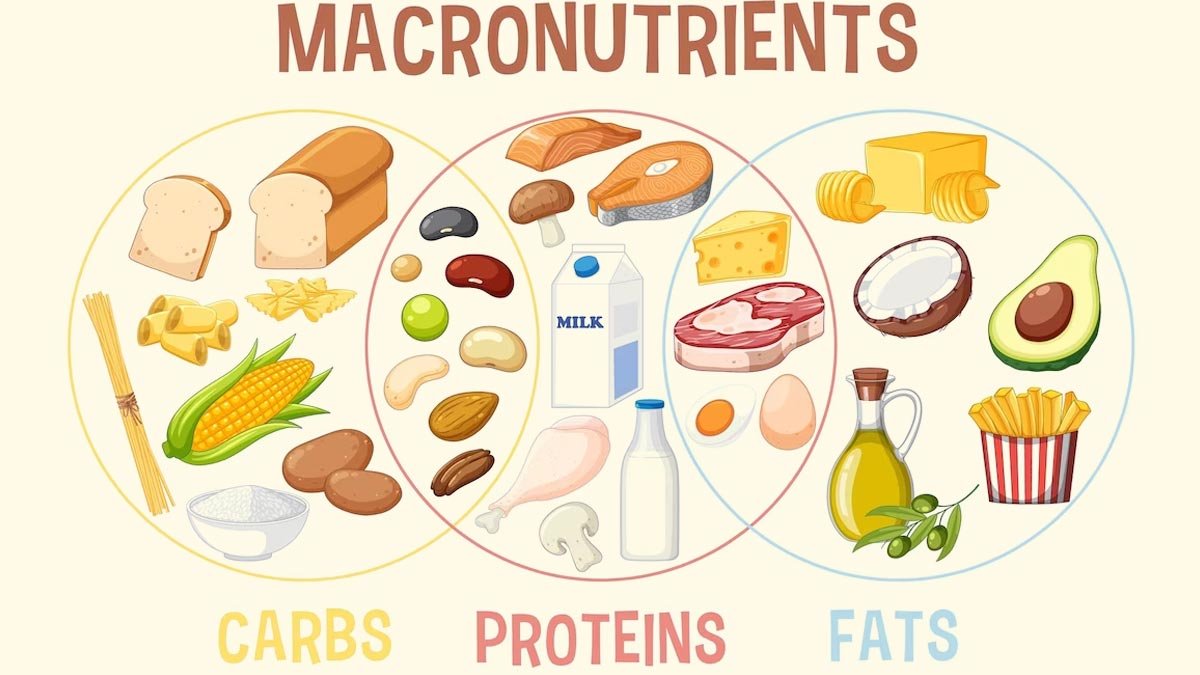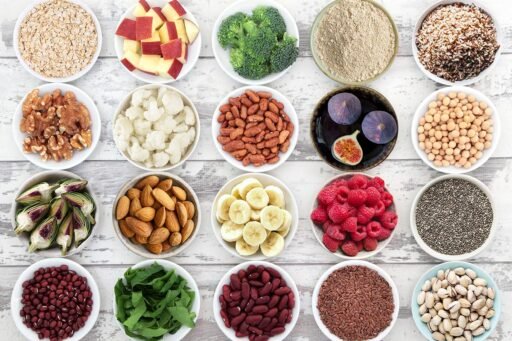1. Understand the Role of Each Macronutrient:
- Carbohydrates: They are the body’s primary source of energy, especially for exercise and physical activity. Not all carbs are equal—choose complex carbs (whole grains, vegetables, legumes) over simple sugars for sustained energy and better satiety.
- Proteins: Essential for muscle repair, growth, and immune function. Protein helps maintain lean muscle mass during weight loss, which is crucial for maintaining a high metabolism.
- Fats: Necessary for hormone regulation, brain function, and energy storage. Healthy fats (from sources like avocado, olive oil, nuts, and fatty fish) are key to overall health and can help control hunger.
2. Determine Your Caloric Needs:
To lose weight, you need to create a calorie deficit, meaning you consume fewer calories than your body burns. However, make sure you’re not overly restrictive, as it can lead to muscle loss and metabolic slowdown.
- Calculate Basal Metabolic Rate (BMR): This tells you how many calories your body needs at rest. There are various online calculators for this, or you can use the Mifflin-St Jeor Equation:
- Men: 10 * weight (kg) + 6.25 * height (cm) – 5 * age (years) + 5
- Women: 10 * weight (kg) + 6.25 * height (cm) – 5 * age (years) – 161
- Add Activity Level: Multiply your BMR by an activity factor to estimate your Total Daily Energy Expenditure (TDEE):
- Sedentary: BMR × 1.2
- Lightly active: BMR × 1.375
- Moderately active: BMR × 1.55
- Very active: BMR × 1.725
- Super active: BMR × 1.9
3. Set Your Macronutrient Ratios:
Once you have your caloric needs, you can break them down into macronutrient percentages. A common macronutrient ratio for weight loss might be:
- Protein: 25-35% of total calories
- Fat: 25-35% of total calories
- Carbohydrates: 30-50% of total calories
These ranges allow for flexibility, depending on your personal needs, goals, and lifestyle. If you’re following a high-protein diet or focusing on low-carb options, your ratios might shift slightly.
- For a 2,000-calorie diet:
- Protein: 25% of 2,000 = 500 calories / 4 (calories per gram) = 125g of protein
- Fat: 30% of 2,000 = 600 calories / 9 (calories per gram) = 67g of fat
- Carbohydrates: 45% of 2,000 = 900 calories / 4 (calories per gram) = 225g of carbs
4. Focus on Nutrient-Dense Foods:
Rather than focusing solely on macronutrient percentages, prioritize whole, nutrient-dense foods that provide vitamins, minerals, and fiber. This helps keep you satisfied and supports overall health.
- Protein Sources: Lean meats (chicken, turkey), fish, eggs, legumes, tofu, low-fat dairy, Greek yogurt, protein powders (if needed).
- Carbohydrate Sources: Vegetables, fruits, whole grains (brown rice, quinoa, oats), legumes, sweet potatoes, and other unprocessed carbs.
- Fat Sources: Avocados, olive oil, nuts, seeds, fatty fish (salmon, mackerel), coconut oil (in moderation).
5. Adjust Based on Activity Level:
- If you exercise regularly, especially strength training or cardio, you may need to adjust your protein intake to preserve muscle mass and promote recovery.
- After workouts, having a mix of protein and carbs helps replenish glycogen stores and supports muscle repair.
6. Monitor Progress and Adjust:
Track your weight, energy levels, and overall health. If you’re not seeing the desired results, or if you feel fatigued, irritable, or excessively hungry, adjust your macronutrient balance. For example, if you’re feeling low on energy, increasing your carbohydrate intake may help.
7. Be Mindful of Timing:
While the overall daily macronutrient balance matters most, meal timing can influence satiety and energy levels:
- Spread protein intake throughout the day to support muscle maintenance.
- Consider having a small protein and carb-based snack post-workout for recovery.
Final Thoughts:
Balance is key for sustainable weight loss. Rather than adopting extreme diets or cutting out entire macronutrient groups, focus on a balanced approach that suits your body’s needs, energy expenditure, and personal preferences. Combining balanced macronutrient intake with regular physical activity, hydration, and sufficient sleep will optimize your weight loss efforts while supporting overall health.































